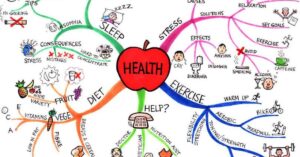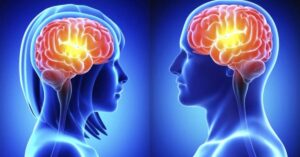Love is a worldwide compel that has spellbound people for centuries. It transcends society, time, and even sense, weaving its way into every aspect of life. From the flurry of first magnetism to the deep bond of lasting promise, love shapes who we are and how we connect with others. But what makes love so powerful? Is it just an sentiment, or does it hold a deeper intention?
This article discovers love from every perspective—its science, psychology, evolution, and contact. Whether you’re interested about the chemistry behind falling in love, the challenges it brings, or its transformative control, this journey will disclose the wonderful and secrecy of love.
The Essence of Love
Love is a deep and complicated feeling that connects persons on an touching, objective, and often spiritual level. It is not limited to romantic interaction but exists in various forms, including family love, friendship, self-love, and absolute love for humanity or nature. Love defies firm definitions, but at its hub, it involves bottomless care, understanding, and a wish for connection with another being.
The Significance of Love in Human Life
Love is an essential part of human survival, influencing our decisions, determining our personalities, and providing a intellect of idea. Love is essential for intellectual happiness, offering soothe and defense. It also motivates individuals to defeat challenges and build a significant life. Exclusive of love, life can feel isolating and devoid of achievement.
The Emotional, Mental, and Physiological Aspects of Love:
Love is not just an sentiment but an practice that affects the mind and body in thoughtful ways:
- Emotional: Love brings happiness, obsession, and achievement but can also suggest helplessness and fear of loss. These emotions create a well-to-do, go-ahead experience unique to each relationship.
- Mental: Love impacts cognitive processes, attractive focus and originality while sometimes leading to obsession or nervousness It boosts the ability to tackle problems and adapt to challenges.
- Psychology of love: From a perspective love can lead to changes, in the brain by releasing hormones such, as oxytocin (known as the bonding hormone) and dopamine (linked to feelings of pleasure). These chemicals produce feelings of joy, peace, and connection, which contribute to the physical atmosphere of love, like a racing heart or “butterflies in the stomach.”
Understanding the essence of love helps we appreciate its transformative power and the unique role it plays in making life more meaningful and fulfilling.
The Science of Love

When a person falls in love, some chemical changes take place in the brain that make him/her feel and act differently. For example, the “pleasure hormone”, dopamine, is released in big amounts, thus making one excited, energetic, and happy. That is why love is euphoric and could be likened to the high obtained from certain drugs.
Oxytocin, or the so-called “bonding hormone,” mediates times of intimacy through embracing, kissing, and time spent together. It enhances trust, nurtures emotional closeness, and develops long-term attachment in a relationship. Another class is that of endorphins, which help in developing calmness by reducing stress and further help in solidifying any bond between people.
The Link between Love and Physical Health:
Love not only changes one’s brain; it even transforms the body. Studies have shown that people who are in loving relationships often have better physical health. Oxytocin can lower blood pressure, reduce stress, and boost heart health, making love a very natural remedy to anxiety and illness.
Besides, physical affection can also trigger the release of serotonin and reduce cortical levels. The secretion of these hormones brings in more immunity and feeling much better physically. In a broader sense, love becomes a natural booster of happiness with several positive impacts on mental and physical aspects.
Love and Its Resemblance to Drug-Like Effects on the Brain:
Such feelings of love often resemble the effects induced by addictive drugs. The resemblance in their actions is attributed to dopamine, which triggers reward pathways into the brain, thereby eliciting desires to be with a loved one. This explains why early-stage love can feel obsessive or all-consuming.
Interestingly, brain scans of people in love also demonstrated heightened activity in parts of the brain associated with addiction and reward, such as the ventral segmental area. This may help explain in part why people feel “high” or “hooked” on the presence and attention of their romantic partner.
Love Psychology

Three Components of Love: Intimacy, Passion, and Commitment
The Triangular Theory of psychologist Robert Sternberg offers three ingredients:
Intimacy: Closeness, connectedness, and trust.
Passion: Physical attraction, desire, and sex.
Commitment: A decision to preserve a relationship in the future.
Their balance determines the kind and amount of love experienced by the persons who participate in it. When this ingredient is combined well, good, lasting love results.
How Love Affects Behavior, Courage, and Attachment:
Love influences behavior by striving to cultivate goodness, tenderness, and selflessness among people. It makes people adventurous, more fragile with their feelings, and it shows bravery for protection or defense of a loved one. Love fortifies social bonds, hence forming closer-knit societies and ushering in cooperation.
Love and Mental Health:
Love greatly influences one’s mental health: a good relationship diminishes stress, anxiety, and depression, providing emotional support during difficult times. On the other hand, unhappy love or unreciprocated feelings can create psychological problems and, therefore, require relationships with positive dynamics.
Falling in Love:
Research indicates that it may take a mere four minutes to attain an impression that can lead to love. Often, this is a subconscious occurrence as body languages and tones of voice, along with other means of eye contact, almost instantly provide a feeling of attraction.
The Role of Physical Attraction and First Impressions:
Physical appearance may create the initial attraction, but more often than not, it is the emotional connection that keeps the love alive. First impressions provide an inclination towards further seeking of compatibility and values being matched.
The Power of Eye Contact and Emotional Connection
Eye contact is a powerful method of increasing feelings of love and thus deeply connecting emotionally. It triggers the release of oxytocin, which builds bonds of trust and intimacy between two people.
The Evolution of Love:
The Different Stages of Love and How It Evolves Over Time
Love progresses through stages, including the following:
Infatuation: Passionate and exciting, but often fleeting.
Romantic Love: A deeper connection with emotional and physical intimacy.
Companionate Love: A mature, stable bond built on trust and commitment.
These stages reflect the natural development that occurs in relationships as they grow and change.
The Role of Similarity, Compatibility, and Shared Values:
While opposites may attract, it is similarity in values, goals, and compatibility that often carries love through the long haul. Similarity of personality, interests, and worldview can see couples through difficult times.
The Balance between Lust, Romance, and Long-Term Affection:
Lust and romance may initiate the relationship, but affection and commitment make it last. A viable relationship balances physical desire with emotional closeness and practical support.
The Impact of Love:
Love fortifies the immune system by decreasing stress and increasing the level of well-being. Romantic and supportive relationships also lower blood pressure, reducing heart disease for a longer, healthier life.
How Love Affects Concentration, Motivation, and Efficiency
Being in love enhances concentration and motivation since it generally activates the brain reward system. Most people always get inspired and motivated when it comes to their loved ones, which enhances much productivity in other areas of life.
Interaction of Love or Stress/Distraction
Whereas love helps release stress, its pressures-for example, conflicts or insecurities at times create disturbance or distraction. Balance and open communication go a long way in mitigating these effects.
Love – Challenges and Realities:
Heartbreak can give one a psychological hurt along with physical manifestations, including tachycardia, weariness, and even “Broken Heart Syndrome,” a heart condition brought about by immense stress.
Not Every Love Story Is About Soul mates: Myths vs. Reality
The concept of “soul mates” is highly romantic but very misleading. Typically, a good relationship is more about mutual effort, growth, and understanding-not destiny.
Recovery, Resilience, and Growth After Love Ends
The loss in a relationship can end in personal growth. Recovery is about emotional processing, rebuilding self-esteem, and learning from the experience; all this strengthens resilience and better prepares the individual for a future relationship.
Cultural and Symbolic Aspects of Love:
Roses and hearts are two of the most traditional symbols of love. Red roses represent passion, while the heart represents emotions and life. Some holidays, like Valentine’s Day, stand out in traditions around the world in the expression of love, proving its universal nature.
Red as the Color of Love
Red represents love and desire because it emanates from life and passion. The color evokes feelings and is a potent symbol when it comes to making a romantic gesture.
How Love is expressed within and Across Cultures
Cultures express love in many different ways, including through arranged marriages, love letters, and public displays of affection. Even with the differences, love can be encapsulated as connection and care.
Love in the Modern World
Busy schedules and digitally distracted life can stress any relationship. However, conscious effort toward prioritizing time together makes strong relationships last.
The Role of Communication and Gratitude in Maintaining Love
Effective communication is the foundation of enduring love. Gratitude expressed promotes appreciation and reinforces emotional bonds, allowing relationships to flourish even when at an impasse.
Love as a Transformative Power:
Love provokes self-perfecting, nurtures empathy, and reinforces emotional resilience. It encourages a person to be the better version for his or her loved one and close people around him/her.
Healing with Love: Emotionally and Physically
Love comforts the partner when he is under emotional distress, thus soothing the stress and helping him to recover from an illness. Recovery could be faster; one will be emotionally steadier in life when there is a loving partner.
Why Love Remains a Universal, Timeless Reality
Love knows no culture, language, or time, since it provides meaning and significance to the human experience. Indeed, the connecting, healing, and inspiriting make it one of the deepest and most lasting experiences in life.
Conclusion
Love is a powerful force that shapes our emotions, mind, and body. It connects people through care, empathy, and shared experiences. Love’s chemistry, like dopamine and oxytocin, brings joy, excitement, and deep bonds.
Despite its beauty, love also brings challenges like heartbreak and insecurity. Yet, it teaches resilience, patience, and personal growth. Love remains a timeless, universal force that gives life meaning and purpose.
FAQ’s
What is the essence of love?
Love is a deep emotional connection that involves care, empathy, and bonding in various forms.
How does love affect the brain and body?
Love releases hormones like dopamine and oxytocin, creating joy, attachment, and reducing stress.
Why is love important for mental health?
Love supports emotional well-being, reducing anxiety and boosting happiness and resilience.
Does love evolve over time?
Yes, love progresses from infatuation to deeper emotional bonds and lasting commitment.
Can love heal emotional pain?
Love provides comfort, reduces stress, and helps individuals recover emotionally and grow.
Meta Description
Discover the power of love, a timeless force that connects hearts, sparks joy, and fosters growth. Explore its beauty, challenges, and the deep meaning it brings to life
Guest Blogger and Content Writer










